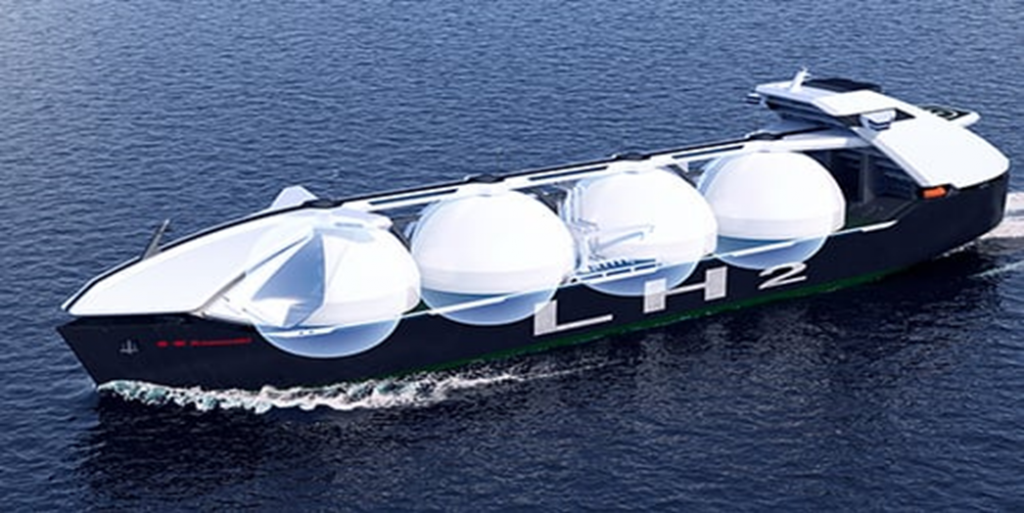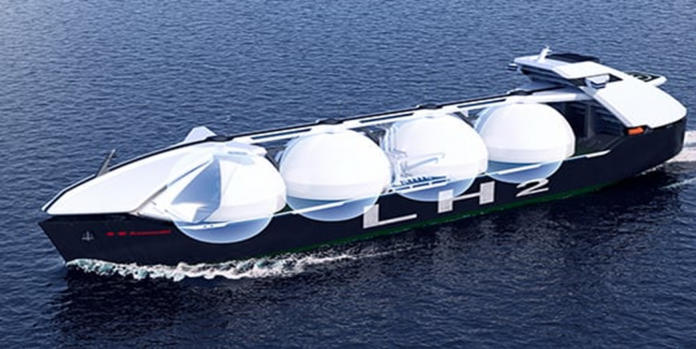
Japan’s Kawasaki Heavy Industries (KHI) has completed the technological development for a cargo containment system (CCS) to be used in large liquefied hydrogen carriers.
As explained, KHI designed and built a test tank to be used to verify the performance of a CCS for large liquefied hydrogen carriers, and conducted verification tests.
In order to enable large-volume marine transportation of hydrogen, the hydrogen must be cooled to –253°C to be liquefied and reduced to 1/800 of its gaseous-state volume, and reliably maintained in these low-temperature conditions for long periods.
To achieve this, Kawasaki developed a new distinctive CCS, CC61H type, for large-scale liquefied hydrogen carriers. It uses a spherical design to keep the outer surface area small relative to the inner capacity and minimize heat ingress. It also features a double-shell structure that provides high-performance, two-step thermal insulation.
The test tank designed based on CC61H type is similar in size to the planned CCS for use in large liquefied hydrogen carriers, each of which will be equipped with four 40,000 cbm tnks for a total cargo capacity of 160,000 cbm.
The structural dimensions of the test tank components, such as the thickness of structural members and thermal insulation materials, were adapted to match actual vessels.
Moreover, the integrity of the new structure was verified, including assembly, welding, and workability of insulation.
During the final step of the development process, Kawasaki carried out gas replacement, cooling, and heat-up tests using the test tank. It was also confirmed that efficient gas replacement could be carried out for the internal space of large tank using inert gas, and that insulation performance was achieved as planned.
This project was carried out under the NEDO subsidy program ‘Technology Development Project for Building a Hydrogen Society, Technology Development for Using Hydrogen Energy on a Large Scale, Development of Large-Scale Transport and Storage Equipment and Export and Import Terminal Equipment for Liquefied Hydrogen’.
Moving forward, Kawasaki will continue its work on the large liquefied hydrogen carriers for commercial operations, in line with a liquefied hydrogen supply chain commercialization demonstration project running through 2030.
To remind, in April 2022, the company received approval in principle (AiP) for its large liquefied hydrogen carrier design from classification society ClassNK.
Source – https://www.offshore-energy.biz by Fatima Bahtic




